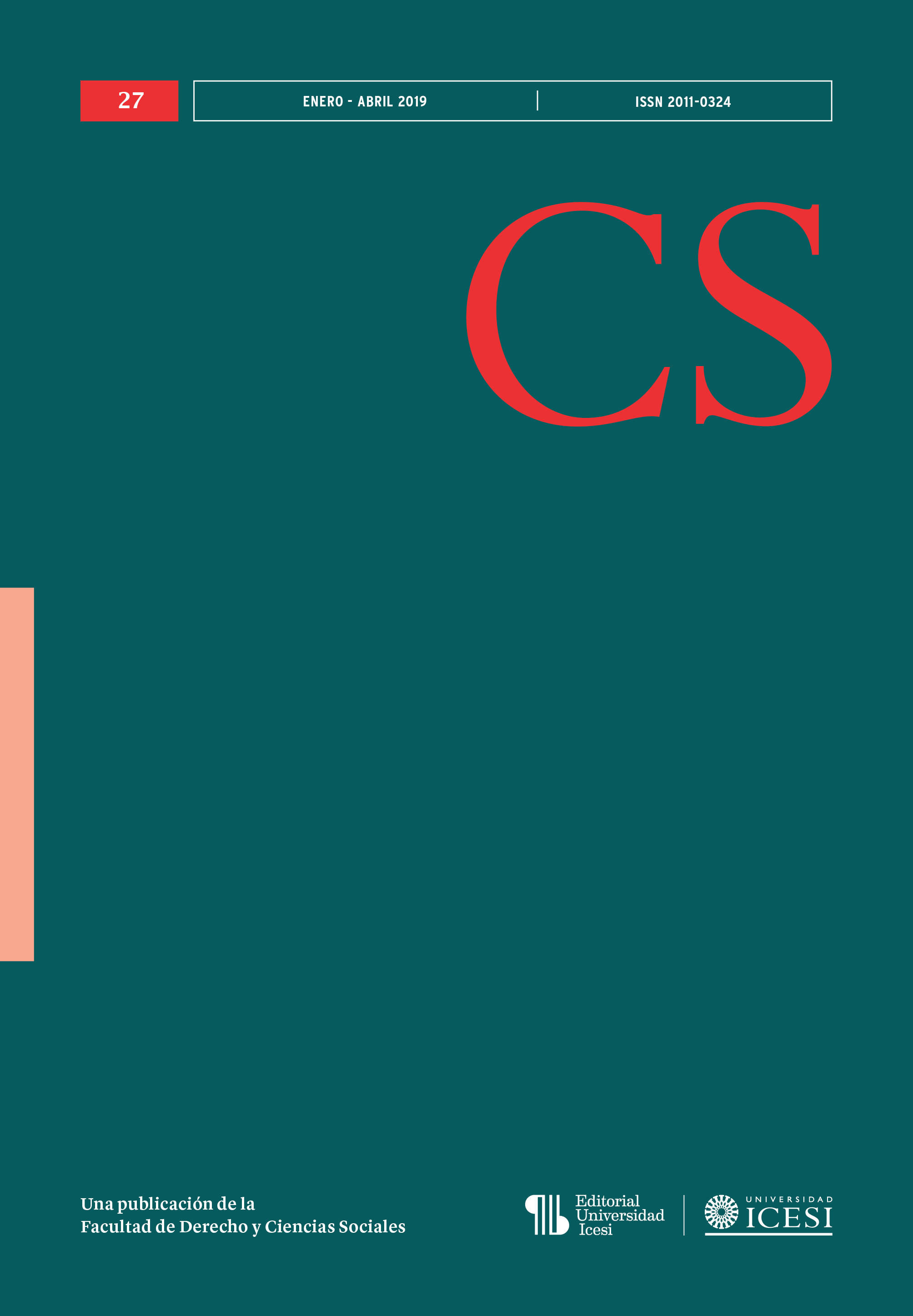Confesión y autenticidad en el discurso populista de hoy
DOI:
https://doi.org/10.18046/recs.i27.3435Palabras clave:
populismo, autenticidad, veridicción, Foucault, AdornoResumen
Las formas de populismo político que están floreciendo en todo el mundo, en versiones de extrema derecha, pero también en versiones de izquierda, a menudo se consideran como ignorancia, noticias falsas y demagogia. Sin embargo, ese tipo de análisis a menudo se concentran en el contenido de las afirmaciones de los líderes populistas, sin prestar atención a las formas de «veridicción» y a las prácticas éticas que constituyen el «populismo». Este artículo toma algunas herramientas teóricas de los diversos trabajos de Foucault sobre la «veridicción» y la verdad, y también de la crítica de Adorno al existencialismo, para tratar de comprender las formas y técnicas que constituyen a los líderes populistas como «auténticos», y, de este modo, como cercanos a la gente e incontaminados por instituciones desacreditadas. La autenticidad se crea por medio de formas muy específicas de decir-la-verdad, como se muestra en el ejemplo del fallecido alcalde de Toronto, Rob Ford.
Descargas
Referencias
Adorno, T. (1973). The Jargon of Authenticity. Evanston: Northwestern University Press.
Comaroff, J. L. y Comaroff, J. (2009). Ethnicity, Inc. Chicago: The University of Chicago Press.
Doolittle, R. (2014). Crazy Town: the Rob Ford Story. Toronto: Penguin.
Foucault, M. (1986). La verdad y las formas jurídicas. Barcelona: Gedisa.
Foucault, M. (2000). Truth and Juridical Forms. In J. Faubion (ed.), The Essential Works of Michel Foucault. Vol. III. New York: New Press.
Foucault, M. (2001). Fearless Speech, ed. Joseph Pearson. Los Angeles: Semiotext(e).
Foucault, M. (2014). Wrong-doing, Truth-telling: the Function of Avowal in Justice, ed. Bernard Harcourt and Fabienne Brion. Chicago: The University of Chicago Press/Presses Universitaires de Louvain.
Foucault, M. (2017). Discurso y verdad. Madrid: Siglo XXI.
Latour, B. (1999). Pandora’s Hope. Essays on the Reality of Science Studies. Cambridge, MA: Harvard University Press.
Latour, B. (2004). Politics of Nature: How to Bring the Sciences into Democracy. Cambridge, MA: Harvard University Press.
Rose, N. (1989). Governing the Soul: the Shaping of the Private Self. London: Routledge and Kegan Paul.
Rose, N. (1999). Powers of Freedom: Reframing Political Thought. Cambridge: Cambridge University Press.
Valverde, M. (1998). Diseases of the Will: Alcohol and the Dilemmas of Freedom. Cambridge: Cambridge University Press.
Valverde, M. (2003). Law’s Dream of a Common Knowledge. Princeton: Princeton University Press.
Valverde, M. (2008). The Ethic of Diversity: Local Law and the Negotiation of Urban Norms. Law and Social Inquiry, 33(4), 895-924.
Valverde, M. (2012). Everyday Law on the Street: City Governance in an Age of Diversity. Chicago: University of Chicago Press.
Zizek, S. (1991). For They Know Not What They Do: Enjoyment as a Political Factor. London: Verso.
Publicado
Número
Sección
Licencia
Derechos de autor 2019 Mariana Valverde

Esta obra está bajo una licencia internacional Creative Commons Atribución-NoComercial 4.0.
© Derechos reservados de autor
El material de esta publicación puede ser reproducido sin autorización, siempre y cuando se cite el título, el autor y la fuente institucional.
El contenido publicado en Revista CS se distribuye bajo la licencia Creative Commons BY-NC 4.0 Atribución/Reconocimiento-NoComercial 4.0 Internacional.
Usted es libre de:
Compartir — copiar y redistribuir el material en cualquier medio o formato.
Adaptar — remezclar, transformar y construir a partir del material.
Bajo los siguientes términos:
Atribución — Usted debe dar crédito de manera adecuada, brindar un enlace a la licencia, e indicar si se han realizado cambios. Puede hacerlo en cualquier forma razonable, pero no de forma tal que sugiera que usted o su uso tienen el apoyo de la licenciante.
NoComercial — Usted no puede hacer uso del material con propósitos comerciales.












